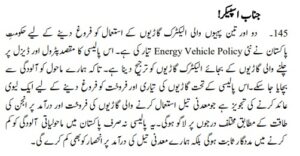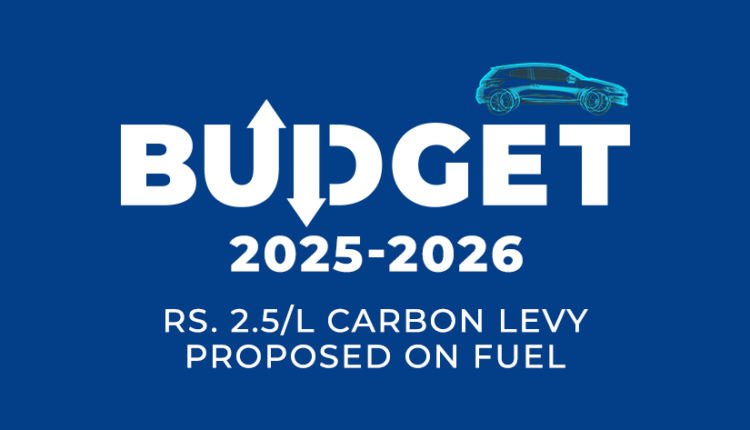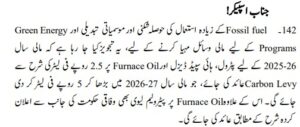Budget 2025-26: Rs. 2.5/L Carbon Levy Proposed On Fuel
As Pakistan gears up for Budget 2025-26, early signals from the finance ministry point towards significant policy shifts with a strong emphasis on environmental sustainability. These changes are set to impact everything from the price of your fuel to the type of vehicle you might consider buying. Let’s break down the key proposals regarding carbon levy that could reshape Pakistan’s energy and automotive landscape.
The Carbon Levy
One of the most notable proposals is the introduction of a Carbon Levy on fossil fuels. Starting from fiscal year 2025-26, a Carbon Levy of Rs. 2.5 per liter will be imposed on petrol, high-speed diesel, and furnace oil. This levy is set to increase to Rs. 5 per liter in the subsequent fiscal year, 2026-27.
This move clearly signals the government’s commitment to curbing fossil fuel consumption and promoting cleaner energy sources. While it will inevitably lead to higher fuel costs, the revenue generated is earmarked for critical environmental initiatives.
Pakistan’s New Energy Vehicle Policy
In a bold stride towards a greener future, the government of Pakistan is also finalizing its New Energy Vehicle Policy to promote the use of two and three-wheeled electric vehicles. The primary objective of this policy is to prioritize electric vehicles over petrol and diesel-powered ones, thereby reducing environmental pollution.
Under this policy, a levy is proposed on the sale and import of conventional fuel-powered vehicles, with varying rates based on engine capacity. This strategic move aims not only to contribute to a cleaner environment in Pakistan but also to significantly reduce the country’s reliance on imported mineral oil.

This policy underscores a clear shift in government strategy, encouraging consumers and manufacturers alike to embrace electric mobility. The levies on conventional vehicles are designed to make electric alternatives more attractive and accessible, driving the transition towards a sustainable transport system.
What Does This Mean for You?
For the average Pakistani, these proposed changes mean a few key things:
- Higher Fuel Costs: The introduction of the Carbon Levy will likely translate to an increase in petrol and diesel prices at the pump. Budget accordingly!
- EVs Becoming More Attractive: With new levies on conventional cars and potentially incentives for EVs, electric vehicles might become a more financially viable and environmentally responsible option.
The coming budget session will confirm these proposals and their final details. It’s clear that Pakistan is taking decisive steps towards a more sustainable future, with significant implications for its energy and automotive sectors. Stay tuned for the official announcements to understand the full impact of these forward-looking policies.



